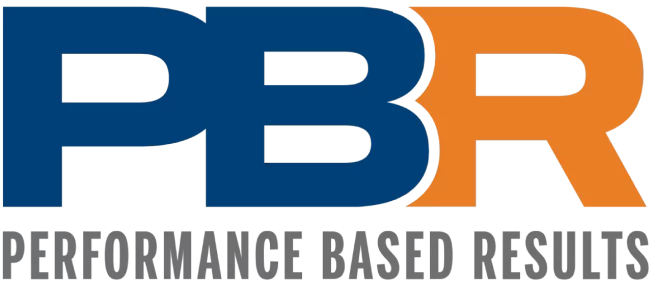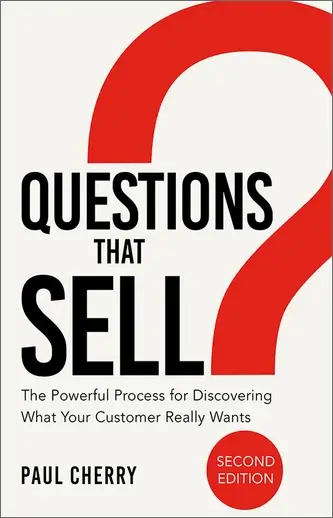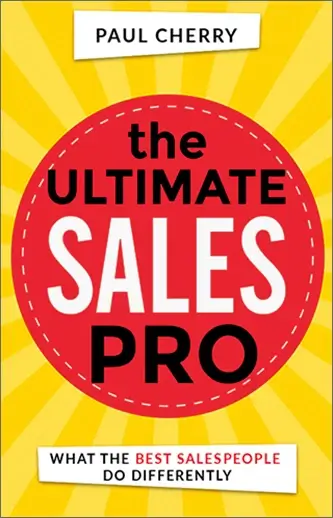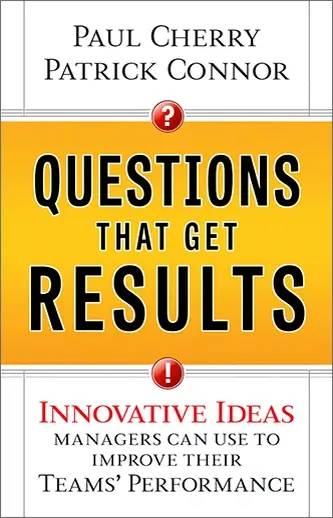One of the first lessons of sales is to know who you are selling to. This lesson applies just as well in the training room when onboarding new sales staff. If your sales training curriculum hasn’t been updated since the 20th Century, it will be about as useful as a floppy disk. The Millennial generation is taking the workforce by storm, and forcing change in nearly every corner of the professional world.
As you rewrite your training curriculum, you should have a clear picture of who Millennials are, how they interact with the world around them, and most importantly how they learn. We’ll look at some important information about the Millennial generation, and offer some tips for designing your training curriculum to make the greatest impact.
Understanding the Millennial Generation
Demographics
Though no official definition exists, the Millennial generation was born between 1980 and 2000 to Baby Boomer and Generation X parents. In terms of general population statistics, Millennials have already overtaken Baby Boomers as the largest generation in the country, with the U.S. Census Bureau putting their total number at 80 million strong. And as Baby Boomers continue their mass exodus from the workforce, Millennials will fill the void, comprising 50% of the workforce by 2020 and nearly 75% by 2030 as the tail end of the generation matriculates and enters the world of work.
Motivations and Values
Millennials were raised with a much different worldview than any preceding generations. Social consciousness and personal fulfillment were at the center of their upbringing. As a result, “Get a job, make money, retire” is not the standard programming for a millennial young professional. Millennials crave the opportunity to make a “difference” and see the impact of their work.
Millennials are working hard to redefine the concept of “work-life balance”. Given the choice between free time and an opportunity for a promotion, Millennials are more apt than previous generations to choose the former. These young adults watched their parents face layoffs, downsizing and outsourcing through the 90s and the Recession of 2008, and were old enough to understand how these lessons might apply to their own careers.
Where some employers see a lack of loyalty among Millennial employees who jump ship after just a few months or years, Millennials feel as though they are maintaining control over their own career, rather than relying on the benevolence on an employer that has made no guarantees of loyalty itself.
Most Educated Generation Ever
The Millennial generation boasts the greatest education achievement of any generation in American history, with more members attaining secondary degrees. It’s no wonder, as they were the first generation for whom a college degree was an expectation, not a goal.
This is a double-edged sword, however, as the economy as a whole may have reached a point on diminishing returns on a well-educated workforce. Competition for jobs requiring an advanced degree is greater than ever. With the cost of a college education far outpacing the cost of living and consumer goods, the price of entry into this cutthroat arena has put many young professionals in a hole before they even really get their careers started.
Millennial Life Experiences
The Millennial generation’s “delayed adulthood” is well documented. A large portion of this age group has chosen to stay at home with mom and dad longer after getting their first job. Marriage and children are put off until even later in their lives than they were by the Baby Boomers or Generation X.
These choices are made out of equal parts necessity and re-examined priorities. Mounds of student loan debt have raised the bar substantially on what “financial independence” means. Many young professionals have monthly student loan obligations that their parents might have considered to be a pretty hefty mortgage payment in their day.

As a result, and learning from the experiences of their parents during the Recession, the Millennial generation has prioritized personal experiences and fulfillment over financial security and career achievement. This is not to say that Millennials don’t place value on these goals, only that success and self-image are not as closely tied to them as they were for the Baby Boomer generation.
Millennials as a whole don’t really remember a time without personal computing and Internet technology. Social media and smartphones were a part of growing up. It’s no wonder they are the most tech-savvy generation.
Instant Gratification
Millennials crave instant gratification. Between helicopter parents and technology that has put the collected knowledge of the entire world at their fingertips, Millennials are accustomed to an instantaneous feedback loop. Older generations may look down with disdain on a Millennial’s impatience, but when they haven’t had to wait for anything in their entire lives, how could we expect anything else?
Millennials in the Workplace
Millennials have been branded with several negative labels: lazy, unprepared, unprofessional, etc. Whether or not these labels are fair or deserved is not up for debate in this article, but we will try to examine some of the traits of the Millennial workforce that serve as the foundation for these perceptions.

Managers and executives in the business world have shown a lack of understanding of the Millennial professional personality. Millennials have their own idea of “professionalism” and reject the rigid structures of traditional office settings. This isn’t about a lack of respect for authority, but rather a difference in priorities and background. Millennials were raised by Baby Boomer or Generation X parents who made their children the center of the universe. Traditional roles and power structures were either never introduced or rarely reinforced.
Some see this attitude as a mistrust of authority or a disdain for the workplace hierarchy. However it manifests itself, the bottom line is that millennials expect to have a much more relaxed and informal relationship to their coworkers, superiors, and even their office environment.
Millennials also don’t subscribe to the “live to work” mindset of the Baby Boomer generation. Their clock-watching and inaccessibility during off hours can be interpreted as laziness by the manager who clawed his or her way into a leadership position with 60 hour work weeks and Saturdays in the office.
In general terms, every generation has endured these same criticisms from their elders. If you are interested in embracing the energy and enthusiasm that young Millennials can bring to your sales team, consider these tips for providing more effective sales training for Millennials that will be driving your company’s growth for the next thirty years.
How to Adapt Your Sales Training for Maximum Millennial Impact
Redefine the classroom
Sitting at a desk for eight hours a day while you listen to a teacher talk is no longer recognized as an effective strategy in the high school classroom, so why is that an effective strategy in the working world? Didactic instruction is certainly easier for the trainer and the curriculum designer, but is that the number one priority of your training program? If it is, we might suggest you re-examine your goals.
Face-to-face, oral communication simply isn’t the way the Millennial generation interacts with information. Written explanations, instructional videos and how-to videos are much more effective methods of instruction for the learner who spends a significant amount of time staring at a smartphone screen.
When you are examining your strategy for training Millennials in the workplace, ask yourself: Do you have the ability to make your trainings electronic or interactive? Believe it or not, your employees will watch training videos on their own time as long as they don’t feel like they’re taking home a 50-page homework assignment. You could even incorporate these video sessions into your training schedule.
Keep the sessions short
For better or worse, smartphones have decreased the amount of time people are willing to invest in understanding what you are trying to convey. Instead of adopting the adversarial “kids these days” attitude, try to learn something from YouTube – John Green can teach you an entire history topic in less than ten minutes. Are you a scholarly expert on the subject afterwards? No. Do you know all of the important points about the topic? Yes.
Technology can help you pack more knowledge into a shorter timeframe, but remember: Technology is a medium, not a product. A dull or poorly-organized presentation isn’t going to be magically fixed by turning it into a video or game. The content and design still has to be solid.
Keeping the length of the session down also allows you to increase the variety of your delivery methods. We all carry a 6 ounce piece of plastic, metal and glass in our pockets that would astound even the most visionary science fiction writers of the previous generation, capable of providing entertainment and information in every medium imaginable with just a swipe of a finger.
The difference between the Millennial generation and their older coworkers is that they have never really known life without it. Millennials have benefited from this revolutionary approach to media consumption, and it has shaped the way they learn and interact with knowledge.
Because this generation is used to jumping from one media platform to another and another in the space of a polite conversation, their entire relationship with information is fundamentally different from their parents’, and in some cases even their older siblings’.
Give them the resources to seek out their own answers
With Google and Wikipedia at their fingertips, Millennials have plenty of experience in their own specific style of research. Don’t automatically assume millennials are dumb. Treat them as the educated young professionals they are. They may not know the answer off the top of their head, but they won’t hesitate to look it up. Don’t worry, it’ll sink in eventually, and they’ll know the answer without looking. That’s how we humans are programmed.
Give hands-on, real-world instruction
Thanks to video and mobile games, Millennials are predisposed to experiential learning. Giving them an opportunity to learn the material first-hand will play right into this style of learning. Real-world scenarios and hands-on learning exercises will help them internalize and apply the information. This way you can evaluate their learning in real-time and keep everyone engaged with the material.

Instant gratification = Timely and meaningful feedback
With the world at their fingertips and the collective knowledge of all humanity one search term away, Millennials can’t quite understand the answer “I don’t know.” This is a perfectly acceptable answer to give to a teacher who has put you on the spot in history class, but in the real world, not knowing an answer usually means you haven’t bothered to look it up. You can meet this expectation by planning interactive lessons that allow them to address their questions and confusion in real time.
That said, instant gratification is a two-sided coin. The second side is manifested in the Millennial desire for immediate affirmation. For a generation that has had even their most insignificant successes celebrated by every grownup and peer within earshot, silence is deafening and the lack of approval is naturally received as acknowledgement of failure.
Make sure you provide regular, meaningful feedback, both positive and negative. Keeping a positive work environment means keeping morale and productivity high.
Sell them on the product, not the process
Millennials want to know that their work has value, and they express that value by understanding how the product they are selling will make a difference in the world. Getting a young salesperson to get excited about selling 50,000 widgets a year is tough sledding for a sales manager.
However, getting that same salesperson to sell the widget that is an integral part in a larger machine that can be used to create good in the world is the easiest task a sales manager will ever face. The average Millennial sales professional won’t sell the widget because it will help increase company profits, they’ll sell the widget because it can help make someone’s life better.
As you work through the training process, make sure you keep your employee’s motivations in mind. Talking at them and remaining stubbornly rigid with “because I say so” answers will shut down a Millennial faster than a dead smartphone battery. They want to be involved in the mission of the company. So when training Millennials, be open and honest about how their work will contribute to a larger goal.
Need help with your sales training sessions?
Hopefully we have convinced you to re-examine your sales training program and revamp it to speak to the younger generation of sales professionals. Over the next decade, the Millennial generation will dominate the workforce, and their approach to the sales profession will undoubtedly transform the industry.
Paul Cherry is a customized sales training expert that can provide sales training that appeals to millennials. He has experience working with 1200 companies nationwide and has written many books as a sales training expert. Paul and the rest of the staff at Performance Based Results can customize every training and workshop to the customer’s exact needs, and provide on-site training throughout the company, at every location.
Delivering a focused, relevant training program can maximize impact while minimizing cost and time. It will set your sales team for sustained success and propel your company forward to a new generation of prosperity.
Special Workshop:
We now offer a seminar that focuses on Millennials!
We have developed a curriculum for this subject: How to Hire, Manage and Motivate a High‑Performing Millennial Sales Force.






